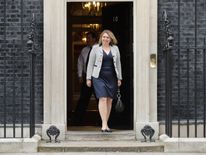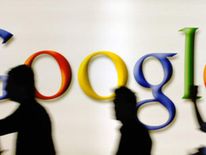The initial stock of Apple's larger iPhone 7 Plus has completely sold out ahead of its release on Friday, the company has said.
Availability of the black iPhone 7 has also been exhausted, although customers will be able to continue placing advance orders online.
Thursday, September 15, 2016
Fresh bid to get a longer jail term for Oscar Pistorius
Prosecutors in South Africa are to make a fresh attempt to get Oscar Pistorius' six-year murder sentence increased.
The National Prosecuting Authority (NPA) says it will file papers on Friday.
Two weeks ago, it asked the country's High Court to overturn Pistorius' sentence but the request was thrown out.
Now it is taking its case to the Supreme Court of Appeal in Bloemfontein.
The athlete fatally shot his girlfriend Reeva Steenkamp at his home on Valentine's Day in 2013.
He initially served one year of a five-year prison sentence for manslaughter, but the conviction was later overturned by an appeals court.
Pistorius was then convicted of the more serious charge of murder.
He could have been jailed for life but the judge in the case decided six years would be sufficient.
The sentence provoked outrage and the NPA announced it would seek a longer term.
Pistorius has always insisted the shooting was a mistake, saying he thought an intruder had entered his home and he feared for his safety.
He fired four shots through a locked toilet door, hitting Ms Steenkamp in the head, hip and arm.
Pistorius claimed in court it was only when he battered down the door with a cricket bat that he realised who was behind it.
Last month Pistorius denied "speculations" of a suicide attempt after he was treated at a private hospital in Pretoria for injuries suffered in jail.
The Olympian and Paralympian was rushed to Kalafong Hospital from his prison cell in Pretoria.
He apparently told officials he had hurt himself falling out of bed.
The National Prosecuting Authority (NPA) says it will file papers on Friday.
Two weeks ago, it asked the country's High Court to overturn Pistorius' sentence but the request was thrown out.
Now it is taking its case to the Supreme Court of Appeal in Bloemfontein.
The athlete fatally shot his girlfriend Reeva Steenkamp at his home on Valentine's Day in 2013.
He initially served one year of a five-year prison sentence for manslaughter, but the conviction was later overturned by an appeals court.
Pistorius was then convicted of the more serious charge of murder.
He could have been jailed for life but the judge in the case decided six years would be sufficient.
The sentence provoked outrage and the NPA announced it would seek a longer term.
Pistorius has always insisted the shooting was a mistake, saying he thought an intruder had entered his home and he feared for his safety.
He fired four shots through a locked toilet door, hitting Ms Steenkamp in the head, hip and arm.
Pistorius claimed in court it was only when he battered down the door with a cricket bat that he realised who was behind it.
Last month Pistorius denied "speculations" of a suicide attempt after he was treated at a private hospital in Pretoria for injuries suffered in jail.
The Olympian and Paralympian was rushed to Kalafong Hospital from his prison cell in Pretoria.
He apparently told officials he had hurt himself falling out of bed.
Police in Ohio shoot dead 13-year-old who pulled out replica gun
Police in Ohio have shot and killed a 13-year-old boy who drew a weapon that turned out to be a BB gun.
It happened on Wednesday as they were investigating reports of an armed robbery in the state capital, Columbus.
A police statement said when officers arrived on the scene they were told by the robbery victim that a group of people had approached him and demanded money.
The victim said that one of them had a gun.
Officers saw three males matching the descriptions of the suspects and tried to speak to them, but two ran off into an alley.

"(They) followed the males to the alley ... and attempted to take them into custody when one suspect pulled a gun from his waistband," the statement said.
"One officer shot and struck the suspect multiple times."
The suspect, later named as Tyree King, was taken to a children's hospital, where he died.
The male with him was interviewed and released pending further investigation.
The officers and the other suspect were not injured.
Police said it was later determined King's weapon was a BB gun - a type of air gun - with an attached laser sight.
An inquiry has been launched into the incident.
Report: France told £18bn Hinkley deal can go ahead
The British government has told France it will approve plans to build a nuclear reactor at Hinkley Point, according to reports.
Two months ago, Theresa May slammed the brakes on the £18bn deal agreed by her predecessor.
However Bloomberg is reporting an official familiar with the matter claims the project will go ahead subject to conditions.

Downing Street has promised there will be a formal decision this month, amid claims the Prime Minister was anxious about the security implications of the Somerset plant being partially funded by Chinese state companies.
It will be built by French-owned EDF, and there have been concerns about the high cost that Britain has agreed to pay to the company for the electricity generated at Hinkley Point - as well as the reactor's design.
Similar projects in other countries have been plagued by delays.
A 300,000-strong petition against the venture is being handed in to Downing Street later, urging Mrs May to invest in renewable power instead.It follows an opinion poll commissioned by Greenpeace which shows public support for the multi-billion pound scheme has fallen to a new low of 25%, whilst nearly half of those polled voiced their opposition to it.
When the deal was agreed by David Cameron last year, the agreement concerned only Hinkley Point but said the Government would look favourably on a Chinese-built reactor at Bradwell in Essex.
Security experts are more concerned about a Chinese-built reactor in terms of giving a foreign power access to key infrastructure in Britain.
It has been suggested the Bradwell part of the deal could be dropped - which would be a blow to China, which is trying to build its reputation internationally as a supplier of nuclear power.

Asked about Bradwell on Tuesday, the business and energy secretary Greg Clark told MPs that "the decision is on the particular contract … with Hinkley C. That's what we are reviewing".
He also reiterated Britain's commitment to nuclear power as an important part of the energy mix.
Mrs May had the chance to speak to Chinese President Xi Jinping at the G20 summit his country hosted earlier this month.
Supporters say the project will generate tens of thousands of jobs
BBC stars earning more than £150k to be named under Govt plans
More than 100 BBC stars will have their salary details made public under plans to name those earning more than £150,000 a year.
The move comes as part of government reforms to make licence fee spending more transparent.
Presenters Gary Lineker, Claudia Winkleman and Graham Norton are expected to be among those named after the new Royal Charter begins next year.
Culture Secretary Karen Bradley's plans are considerably tougher than those proposed by her predecessor John Whittingdale, who wanted a £450,000 salary trigger.
Under Mr Whittingdale's plans only seven stars would be named - but that will now rise to 109.

Earnings will be broken down into bands of £50,000, with the details being published in the 2016/17 annual report next summer.
Executives earning more than £150,000 are already named, and the BBC fears adding stars' details to the list would make it harder to attract and retain talent.
However, Strictly Come Dancing host Claudia Winkleman said last week that she was "all for" BBC stars' earnings being disclosed because they are "working for the public".
A draft of the new Royal Charter, which will run for 11 years, will be published later today.
The Culture, Media and Sport Committee recently said there was "no good reason" for performers, presenters and executives who earn more than the Prime Minister's salary of £143,462 to "hide" their pay.

Earlier this week, Rona Fairhead announced she was stepping down as chair of the BBC Trust - and it emerged the corporation had lost hit show Great British Bake Off after it was snapped up by Channel 4.
An unnamed BBC official told the Press Association: "We pay less for stars than other broadcasters. We already publish details of spending on talent. Last year, we cut the pay bill by £8m in what is an inflationary market.
"The public says they want the best stars on the BBC and this could make it harder to retain them."
Wednesday, September 14, 2016
Jean-Claude Juncker: YouTube should pay more to musicians
YouTube and other video websites will be forced to pay more for music under plans to reform European copyright laws.
The European Commission proposals would see artists and record companies get more money from video sites, while platforms like YouTube and Facebook would also be required to use technology that can track copyright violations.
The planned reforms would also oblige publishers and producers to be transparent about profits made from an artists' work.
The draft directive, which includes copyright protections for newspapers, were announced during European Commission President Jean-Claude Juncker's State of the Union speech.

Mr Juncker said: "I want journalists, publishers and authors to be paid fairly for their work, whether it is made in studios or living rooms, whether it is disseminated offline or online, whether it is published via a copying machine or commercially hyperlinked on the web."
Under the EC proposals internet portals like Google and Reddit would be forced to pay newspaper publishers a licence fee when using small extracts of news stories.
Carlo Perrone, head of the European Newspaper Publishers' Association, welcomed the move as a "significant and historic step".
However Conservative MEP Daniel Hannan claimed the plan "won't lead to more income for news sites, let alone journalists".

The planned restrictions on video websites come after a report from campaign group UK Music, which said that revenues from ad-funded digital services "effectively devalue our music behind protectionist and outdated legislation".
In June, Coldplay, ABBA and Paul Weller were among more than 1,000 artists who signed a letter calling for European leaders to crack down on websites "that are unfairly siphoning value away from the music community."
The letter added: "This situation is not just harming today's recording artists and songwriters.
"It threatens the survival of the next generation of creators too, and the viability and the diversity of their work."
The planned reforms will go to the European Parliament and EU member states for approval.
Jean-Claude Juncker: YouTube should pay more to musicians
YouTube and other video websites will be forced to pay more for music under plans to reform European copyright laws.
The European Commission proposals would see artists and record companies get more money from video sites, while platforms like YouTube and Facebook would also be required to use technology that can track copyright violations.
The planned reforms would also oblige publishers and producers to be transparent about profits made from an artists' work.
The draft directive, which includes copyright protections for newspapers, were announced during European Commission President Jean-Claude Juncker's State of the Union speech.

Mr Juncker said: "I want journalists, publishers and authors to be paid fairly for their work, whether it is made in studios or living rooms, whether it is disseminated offline or online, whether it is published via a copying machine or commercially hyperlinked on the web."
Under the EC proposals internet portals like Google and Reddit would be forced to pay newspaper publishers a licence fee when using small extracts of news stories.
Carlo Perrone, head of the European Newspaper Publishers' Association, welcomed the move as a "significant and historic step".
However Conservative MEP Daniel Hannan claimed the plan "won't lead to more income for news sites, let alone journalists".

The planned restrictions on video websites come after a report from campaign group UK Music, which said that revenues from ad-funded digital services "effectively devalue our music behind protectionist and outdated legislation".
In June, Coldplay, ABBA and Paul Weller were among more than 1,000 artists who signed a letter calling for European leaders to crack down on websites "that are unfairly siphoning value away from the music community."
The letter added: "This situation is not just harming today's recording artists and songwriters.
"It threatens the survival of the next generation of creators too, and the viability and the diversity of their work."
The planned reforms will go to the European Parliament and EU member states for approval.
Subscribe to:
Posts (Atom)

